Intro
Discover 6 milestones at age 6, including social, emotional, and cognitive development, language skills, and physical growth, highlighting key child development stages and parenting tips.
At the age of 6, children typically experience significant developmental milestones that shape their physical, emotional, and cognitive abilities. This stage is crucial as it lays the foundation for future growth and development. Understanding these milestones is essential for parents, caregivers, and educators to provide the necessary support and guidance. The journey of a 6-year-old is marked by curiosity, exploration, and a desire to learn and interact with the world around them.
As children reach the age of 6, they begin to assert their independence, showcasing their unique personalities and characteristics. This age is also marked by significant improvements in their physical abilities, such as running, jumping, and balance. Their fine motor skills are refined, enabling them to draw, write, and engage in crafts with more precision. Socially, 6-year-olds start to form close friendships and demonstrate an understanding of social norms and behaviors.
The development of a 6-year-old is a multifaceted process, influenced by a combination of genetic, environmental, and societal factors. It is a period of rapid growth, both physically and cognitively, where children begin to question their surroundings, seek answers, and develop problem-solving skills. Their language skills are also advancing, allowing them to express their thoughts, feelings, and needs more effectively. This stage is critical for laying the groundwork for future academic success, social integration, and emotional well-being.
Physical Development Milestones
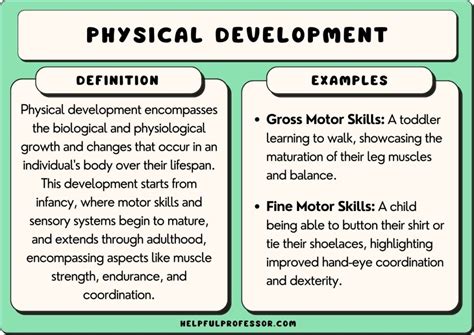
Refining Gross Motor Skills
The refinement of gross motor skills is a key aspect of physical development at this age. Children can engage in more complex physical activities, such as dancing, skipping, and playing team sports. These activities not only improve their physical health but also contribute to their social and emotional development by teaching teamwork, discipline, and healthy competition.Advancements in Fine Motor Skills
Fine motor skills, such as drawing, coloring, and writing, see significant advancements. Children at this age can create more intricate drawings, use different colors to represent various objects, and start writing simple sentences. These skills are foundational for future academic success, as they form the basis of literacy and artistic expression.Cognitive Development Milestones
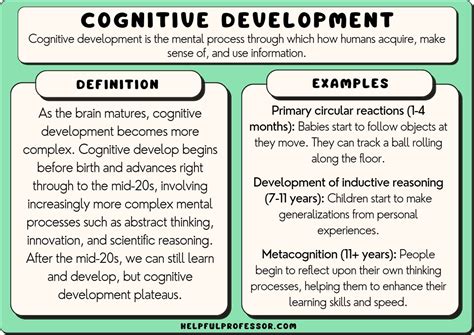
Problem-Solving and Critical Thinking
The development of problem-solving skills is a critical milestone at this age. Children start to think more logically and can approach problems with a more methodical mindset. They are able to consider multiple solutions to a problem and choose the most appropriate one, showcasing their growing critical thinking abilities.Memory and Instruction Following
Improvements in memory allow children to recall sequences of events, remember stories, and follow multi-step instructions. This enhancement in memory and instruction-following skills is essential for their academic and social development, enabling them to participate more effectively in classroom activities and interact with peers and adults.Emotional and Social Development Milestones
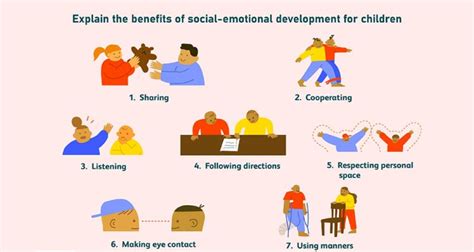
Expressing Emotions and Empathy
Children at this age are better at recognizing, understanding, and expressing their emotions. They can also demonstrate empathy towards others, showing an understanding of how their actions might affect those around them. This emotional intelligence is foundational for building strong, healthy relationships and navigating social challenges.Forming Friendships and Social Bonds
The formation of friendships is a pivotal aspect of social development at 6 years old. Children start to prefer the company of friends, engage in cooperative play, and show loyalty to their peers. These early friendships play a significant role in their emotional and social development, teaching them valuable lessons about trust, communication, and conflict resolution.Language and Communication Milestones
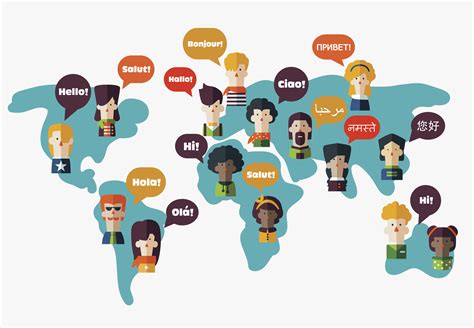
Vocabulary Expansion and Complex Sentence Construction
The expansion of vocabulary is a key milestone, enabling children to express their thoughts and feelings more accurately. They are also able to construct complex sentences, using conjunctions and prepositions to link ideas together. This development in language skills is essential for effective communication and academic success.Engaging in Conversations and Understanding Stories
Children at this age are more adept at engaging in conversations, listening to others, and responding appropriately. They can also understand and retell stories, demonstrating an improvement in their comprehension and memory skills. These advancements in language and communication are vital for their social and academic development.Academic and Educational Milestones
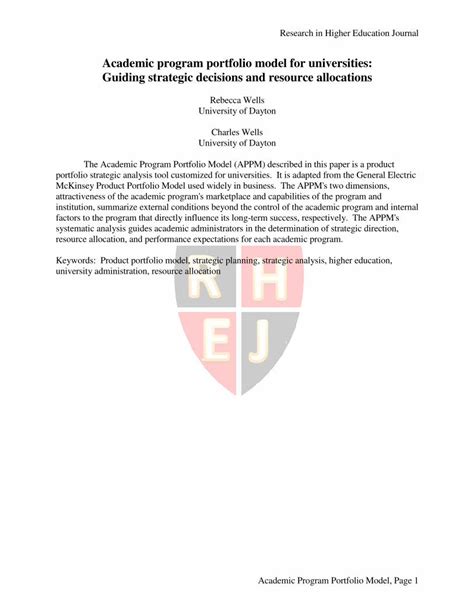
Introduction to Formal Education
The introduction to formal education is a significant milestone at this age. Children start attending school, where they are exposed to a variety of subjects and learning activities. This marks the beginning of their formal educational journey, where they will develop foundational skills in literacy, numeracy, and social sciences.Development of Foundational Skills
The development of foundational skills in reading, writing, and mathematics is critical at this stage. Children learn to recognize letters, count numbers, and perform basic arithmetic operations. These skills are the building blocks of future academic success and are essential for their cognitive and social development.What are the most significant physical development milestones at age 6?
+At age 6, children exhibit notable physical development milestones, including refined gross motor skills such as running, jumping, and balance, and advancements in fine motor skills like drawing, coloring, and writing.
How do cognitive development milestones impact a child's problem-solving abilities at age 6?
+Cognitive development milestones at age 6 significantly impact a child's problem-solving abilities, enabling them to think more logically, approach problems methodically, and consider multiple solutions.
What role do emotional and social development milestones play in a child's ability to form friendships at age 6?
+Emotional and social development milestones at age 6 are crucial for a child's ability to form friendships, as they enable children to express emotions, empathize with others, and engage in cooperative play, laying the groundwork for meaningful relationships.
As we explore the multifaceted development of a 6-year-old, it becomes clear that this stage is pivotal for future growth and success. By understanding and supporting these milestones, parents, caregivers, and educators can provide the necessary foundation for children to thrive academically, socially, and emotionally. Encouraging curiosity, promoting physical activity, fostering emotional intelligence, and nurturing a love for learning are just a few ways to support the holistic development of a child at this critical age. We invite you to share your experiences, ask questions, and explore the wonders of child development further, as together, we can make a positive impact on the lives of our young learners.
